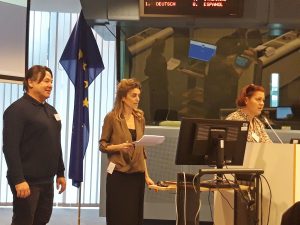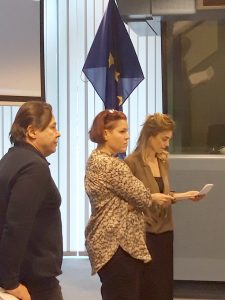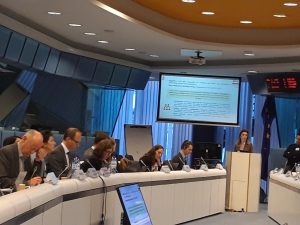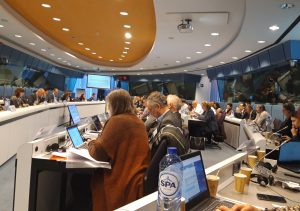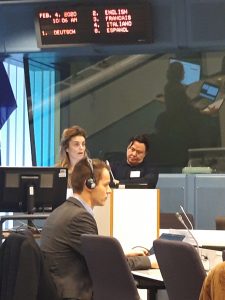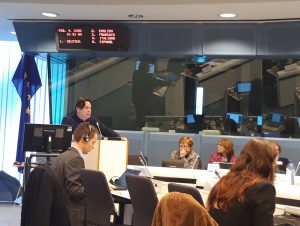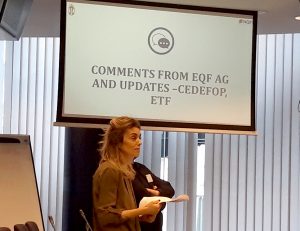The National Qualifications Framework has been referenced to the European Qualifications Framework
The Report on referencing National Qualifications Framework of Serbia (NQFS) to the European Qualifications Framework (EQF) was adopted at the 52nd EQF Advisory Group meeting held on 4th and 5th February 2020 in Brussels, along with the supplementary Report on self-certification of NQFS in the field of higher education to the Qualifications Framework in the European Higher Education Area (QF-EHEA), as part of the EU accession process and as one of the objectives of the national strategic documents. The Report was prepared in line with the criteria and procedures set forth by the EQF Advisory Group and presents a result of numerous expert and consultancy meetings held with the national and EU partners, including Mile Dželalija from the Republic of Croatia and Eduard Staudecker from the Republic of Austria.
The delegation of the Republic of Serbia at the 52nd EQF Advisory Group meeting consisted of the representatives of the Ministry of Education, Science and Technological Development, the State Secretary Anamarija Viček and Ms. Vesna Fabian, PhD, as well as national experts Ms. Tatijana Glišić Milutinović from the Qualifications Agency, prof. Siniša Đurašević, PhD, and Mr. Vladimir Bojković.
Through the adoption of the Report on Referencing the NQFS to the EQF, the qualifications framework of the Republic of Serbia has been referenced to the European Qualifications Framework, meaning that a clear and transparent relationship has been established between eight qualification levels in Serbia and eight qualification levels of the European Qualifications Framework.
The European Qualifications Framework was established for several reasons. Whilst its primary purpose is to help the citizens pursue their learning and career development, this framework also supports other stakeholders in education, training and employment to improve policies and practices. As a comprehensive reference framework, the EQF enables the employers to better assess the qualifications from other countries, to better understand the qualification levels of each candidate, compare their qualifications with the national qualifications and better understand the relevance of these qualifications. Through the EQF the employers can consider Europe as one single qualification area. This reduces the obstacles to the labour mobility, supports a better use of the existing knowledge, skills and competences and ensures a better match between the supply and demand on the labour market. As for the students and individuals who wish to learn, the European Qualifications Framework provides an easily accessible overview of qualifications and the ways they can be acquired.
Referencing the NQFS to the EQF implies a number of challenges to be addressed in the future. Specific activities will be initiated to ensure that the individual qualification certificates, in addition to the information on the NQFS level, include the information on the EQF level. The EQF levels will also be clearly indicated in the qualifications database and the NQFS Registry which is currently being established with the aim to achieve better transparency and comparability of qualifications.
4th February Referencing Report Serbia
Download the document: Serbia-Referencing-Report_0-1

